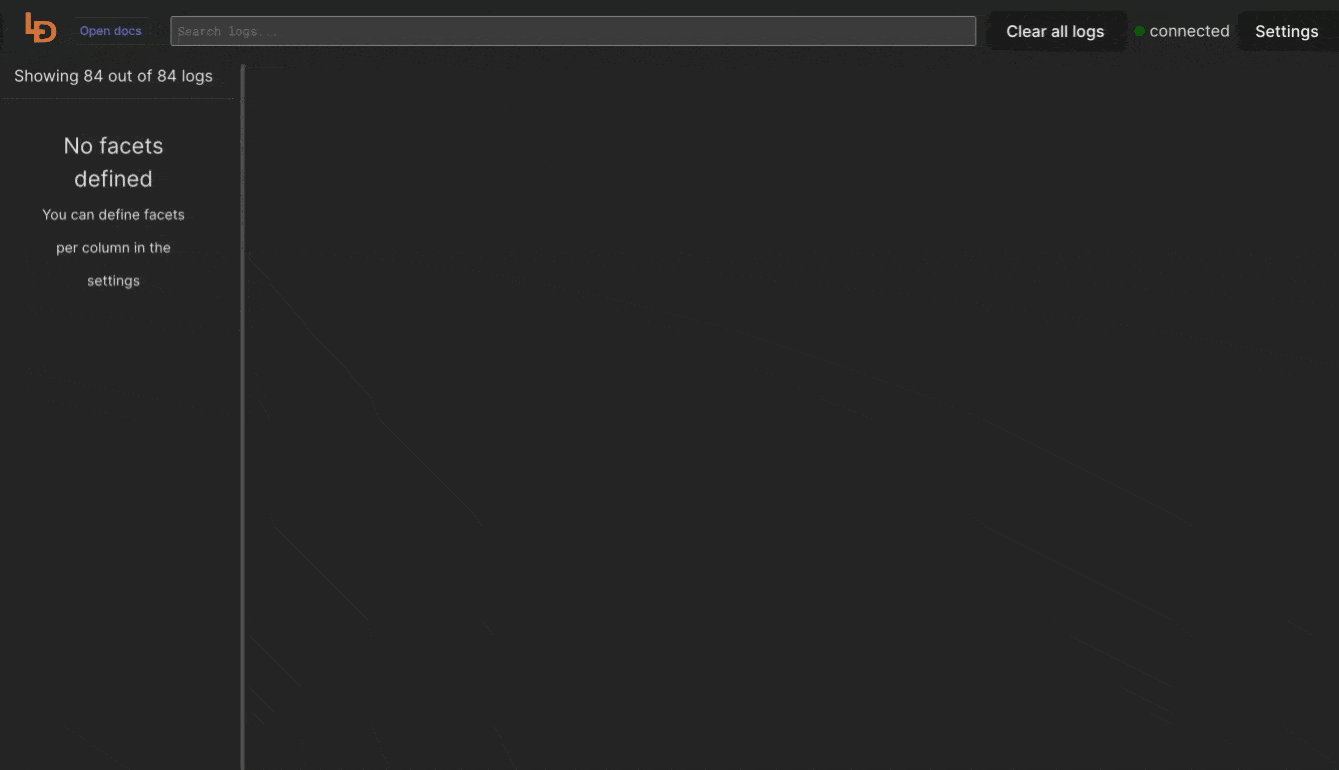Nodejs & npm run dev logs parser & viewer UI
What is nodemon?
nodemonis a tool that helps develop Node.js based applications by automatically restarting the node application when file changes in the directory are detected.nodemondoes not require any additional changes to your code or method of development. nodemon is a replacement wrapper for node. To use nodemon, replace the word node on the command line when executing your script.
For more please refer to the official repository
Live code reloading, what is it?
Live reloading is popular because it streamlines the development process by automatically updating applications in real-time as code changes are made. This immediate feedback loop enhances developer productivity, accelerates debugging, and provides an efficient workflow, eliminating the need for manual steps like server restarts or browser refreshes. Its adaptability to modern web development practices further solidifies live reloading as a key feature, promoting faster iteration and collaboration in the development environment.
What's good about live code reloading
Live reloading enhances developer productivity by instantly reflecting code changes without the need for manual interventions like server restarts. It accelerates the debugging process, allowing developers to quickly identify and address issues as they arise. Additionally, its real-time feedback loop fosters an efficient and collaborative development environment, contributing to faster iteration and smoother teamwork.
Install using script
The command below will download the latest release and add the executable to your system's PATH. You can also use it to update Logdy.
$ curl https://logdy.dev/install.sh | shDownload reporting
We're tracking the number of downloads by sending an empty request to https://notify.logdy.dev/download which exposes the IP of the machine you're installing Logdy on. If you wish no to do it, use the other install script which skips the reporting.
$ curl https://logdy.dev/install-silent.sh | shInstall with Homebrew (MacOS)
On MacOS you can use homebrew to install Logdy.
$ brew install logdyDownload precompiled binary
Enter release page on Github and select recent release. Download a precompiled binary.
# For Linux (x86)
wget https://github.com/logdyhq/logdy-core/releases/download/v0.17.0/logdy_linux_amd64
# For MacOS (ARM)
wget https://github.com/logdyhq/logdy-core/releases/download/v0.17.0/logdy_darwin_arm64
# Add Logdy to PATH: logdy.dev/docs/how-tos#how-to-add-logdy-to-pathMore compliation target
You can find more precompiled libraries on the Github release page. We always always build for the following OS and architecture: linux/amd64 windows/386 windows/amd64 darwin/amd64 darwin/arm64 linux/arm64
Run Logdy
nodemon is language agnostic, it observes all of the files in a specific directory and restarts a provided command whenever changes occur. Therefore, even though it's written in Node.js you don't have to use it on when working with Node.js app.
Logdy plays nicely with nodemon since the original command doesn't exit
$ nodemon app.js | logdyEnter Logdy web UI
Visit the address provided in the console output after starting Logdy, by default it should be http://localhost:8080
Display columns and filters
Logdy makes parsing and column selection a breeze. Use a built in "autogenerate" feature to generate columns based on JSON object present. Then you can make any adjustments and customizations. Based on the columns you can also emit facets or use another great feature to generate those automatically.
With a JSON object in place, you can use Auto-generated columns together with Faceted columns.

